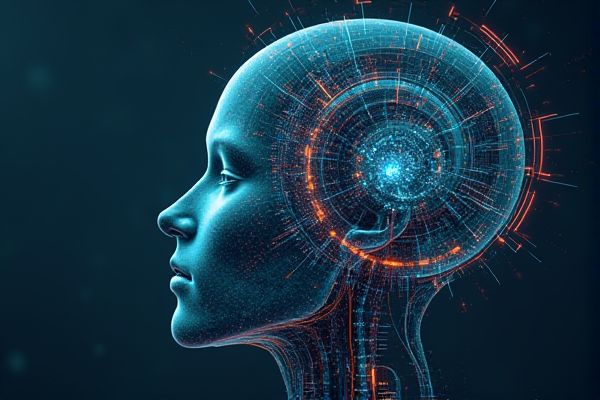
Artificial Intelligence revolutionizes game development and design by enhancing gameplay experiences through dynamic responses to player actions. AI algorithms can create adaptive NPC behaviors, providing realistic interactions that keep players engaged. Procedural content generation driven by AI allows developers to create expansive worlds and unique levels, reducing development time while increasing variety. AI tools also assist in testing and quality assurance, identifying bugs and optimizing performance to ensure a polished final product.
AI usage in game development and design
Procedural Content Generation
The possibility of AI in game development is enhancing procedural content generation, allowing for dynamic environments and unique gameplay experiences. Techniques like machine learning algorithms can analyze player behavior to create tailored game elements, improving player engagement. Companies like Unity are integrating AI tools to streamline the design process and reduce production time. This can lead to more innovative game concepts and greater opportunities for developers in a competitive market.
Non-Player Character (NPC) Behavior
AI can significantly enhance Non-Player Character (NPC) behavior in game development and design. For example, developers can employ machine learning to create more realistic and adaptive NPCs that respond to player actions. This possibility allows for richer gameplay experiences, increasing player engagement and retention. Integrating advanced AI could also streamline the development process, enabling teams to focus on creative aspects while relying on AI for complex coding tasks.
Real-time Language Translation
AI in game development can enhance player experiences by creating adaptive gameplay that responds to user choices. Real-time language translation could enable seamless multiplayer interactions across different languages, improving global player engagement. Such advancements may lead to a broader audience for game titles, allowing companies like Ubisoft to expand their markets. The possibility of these technologies transforming storytelling and community building in gaming is growing.
Adaptive Difficulty Systems
Adaptive difficulty systems in game development leverage AI to tailor gameplay experiences to individual player skills. This approach increases player engagement by adjusting challenges based on real-time performance metrics, making games like "Dark Souls" more accessible to new players. Such systems can analyze player behavior, enabling the game to provide suitable challenges and rewards. The use of AI in this context offers a significant advantage in enhancing player retention and satisfaction.
Emotion Recognition and Response
The use of AI in game development can enhance the gaming experience through emotion recognition and response systems. These systems can analyze player reactions, adapting game scenarios to improve engagement and immersion. For example, an AI-driven character in a game could respond more intelligently to a player's emotional state, making gameplay feel more personalized. This technological advancement opens up possibilities for creating more dynamic storytelling within games.
Player Data Analytics
AI can enhance game development by enabling more intricate and adaptive gameplay experiences. Player data analytics allows developers to understand player behavior, leading to more tailored game design. For example, institutions like Ubisoft utilize AI to analyze player engagement, ensuring games meet audience expectations. This approach can improve player retention and satisfaction, ultimately benefiting the game's commercial success.
Environmental Simulations
AI in game development offers benefits such as enhanced player experiences through adaptive gameplay mechanics. For instance, integrating AI-driven character behaviors can create more engaging interactions. In environmental simulations, AI can predict weather patterns and wildlife behaviors, making virtual ecosystems more realistic. This advanced modeling presents opportunities for educational institutions to utilize these simulations in teaching environmental science.
Sound and Voice Generation
AI can enhance game development and design by streamlining asset creation and optimizing gameplay mechanics. For example, AI algorithms can automate sound and voice generation, allowing developers at institutions like DigiPen Institute of Technology to produce high-quality audio more efficiently. This technology offers the possibility of creating immersive experiences that adapt to player behavior in real-time. Consequently, AI has the potential to reduce development costs while increasing player engagement and satisfaction.
AI-Driven Storytelling
AI can enhance game development by enabling procedurally generated content, which allows for unique environments and scenarios. AI-driven storytelling can create dynamic narratives that adapt based on player choices, fostering deeper engagement. For instance, Ubisoft experiments with AI to improve player interactions and storytelling depth in their games. This technology presents the possibility of creating immersive experiences that evolve, offering players a chance to influence outcomes significantly.
Automated Testing and Debugging
AI can significantly enhance game development and design through automated testing and debugging processes. By integrating machine learning algorithms, developers can identify and resolve bugs faster, improving overall game quality. For example, a game studio like Electronic Arts might leverage AI to streamline the debugging of complex game mechanics. This leads to more efficient workflows and the possibility of gaining a competitive edge in a rapidly evolving industry.
 techknowy.com
techknowy.com